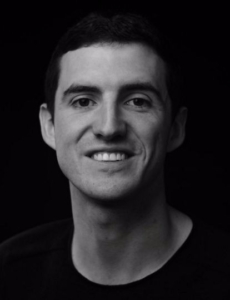You Deserve to Live: Why I’m So Grateful I Did Not End My Life
All three of these times, when I made the decision to jeopardize my own existence, I truly wanted to die. In those moments, I believed that whatever I was going through – coming to terms with my sexuality, break ups, fights with friends, bad decisions – was worth ending my life. Today, as I am in a place where I am focused on my mental health and taking care of myself, looking back on those moments breaks my heart. I am so grateful that I did not succeed.
My childhood and adolescence were marked with milestones of self-destruction.
Content note: Descriptions of self-harm, eating disordered behaviors, substance abuse, and suicide.
When I was 13 years old, I swallowed a handful of pills; when I was 16, I did the same thing again, but this time an even larger dose, chased down with mouthwash. The first time I was sober; the second time I was drunk. Both of those incidents lead to me being hospitalized, and the latter lead to my spending month of inpatient rehab for substance abuse.
I didn’t stop then: when I was 22 – a month before I stopped drinking forever – I tried to run into traffic in New York City after breaking up with my ex-boyfriend.
All three of these times, when I made the decision to jeopardize my own existence, I truly wanted to die. In those moments, I believed that whatever I was going through – coming to terms with my sexuality, break ups, fights with friends, bad decisions – was worth ending my life.
Today, as I am in a place where I am focused on my mental health and taking care of myself, looking back on those moments breaks my heart. I am so grateful that I did not succeed.
In retrospect, the fact that I went to such extremes to end my life isn’t shocking when I consider the sustained harm I inflicted on my body through years of fasting, binging, and purging, and years of binge drinking and drug abuse. As someone who struggles with depression, anxiety, and addiction, it took me over 20 years to learn to value myself, both physically and emotionally; it took me over 20 years to convince myself I deserved to live.
September is National Suicide Prevention Month and this time of the year, in particular, makes me so aware of the terrifying prevalence of suicide, suicidal ideations, and suicide attempts. According to the American Foundation for Suicide Prevention, suicide is the 10th leading cause of death in the US. Each year, over 44,000 Americans die by suicide, and for every death by suicide there are 25 attempts.
While eating disorders have the highest mortality rate of all psychiatric disorders, suicide is the most common cause of death among individuals with eating disorders. This data is, frankly, terrifying.
I have always believed the best approach to helping people survive mental illness is through open conversation. If you are able to share your story, please do. You never know whose mind you may open; you never know whose life you may save. The longer we allow mental illness to be stigmatized, the more people we will lose.
We can’t have that.
If you suffer from an eating disorder or addiction, be honest with yourself, your loved ones, and medical professionals. Seek help.
If you love someone who suffers from an eating disorder, other addiction, or mental illness, be honest with them about your concern. Even if they get mad at you, your being open could make all the difference; your words could be the push they need to get help.
If you are experiencing suicidal ideations or if someone you love is experiencing suicidal ideations, don’t wait: get help NOW. You are not being overdramatic or getting ahead of yourself; suicide is real and suicide takes lives, all the time. When it comes to your mental health, it is always better to seek help immediately than to wait.
You deserve to live.
For recovery resources and treatment options, please visit our resource center. If you or someone you know is struggling with an eating disorder, call ANAD’s Helpline at: (888) 375-7767 or the National Alliance of Eating Disorders Helpline at: (866) 662-1235.
If you are thinking about suicide, call or text the National Suicide Prevention Lifeline at 988. In crisis situations, text “NEDA” to 741741 to be connected with a trained volunteer from the Crisis Text Line.
Seamus published his memoir, Shitfaced: Musings of a Former Drunk, in early 2017, and has written about mental health and substance abuse issues for Teen Vogue, Upworthy, Advocate.com, The Huffington Post, and The Mighty. He has been a guest for a live recording of the Mental Illness Happy Hour podcast, has Facebook Lived about his own experiences for The Mighty, was a panelist for NEDA’s Twitter Chat about eating disorders in men and was also a panelist for Refinery29’s ‘Race in America’ dialogue. Follow Seamus on Twitter, and like his Facebook page here.





